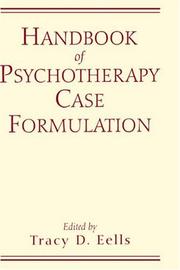| Listing 1 - 10 of 439 | << page >> |
Sort by
|
Book
ISBN: 0824716957 Year: 1973
Abstract | Keywords | Export | Availability | Bookmark
 Loading...
Loading...Choose an application
- Reference Manager
- EndNote
- RefWorks (Direct export to RefWorks)
Pesticides --- Formulation of pesticides --- Pesticide formulation --- Formulation
Book
ISBN: 0841212228 Year: 1988 Publisher: Washington, District of Columbia : American Chemical Society,
Abstract | Keywords | Export | Availability | Bookmark
 Loading...
Loading...Choose an application
- Reference Manager
- EndNote
- RefWorks (Direct export to RefWorks)
Book
ISBN: 0841210829 Year: 1984 Publisher: Washington, District of Columbia : American Chemical Society,
Abstract | Keywords | Export | Availability | Bookmark
 Loading...
Loading...Choose an application
- Reference Manager
- EndNote
- RefWorks (Direct export to RefWorks)
Book
Year: 1955 Publisher: Bern : H. Huber,
Abstract | Keywords | Export | Availability | Bookmark
 Loading...
Loading...Choose an application
- Reference Manager
- EndNote
- RefWorks (Direct export to RefWorks)
Book
ISBN: 303159956X Year: 2024 Publisher: Cham, Switzerland : Macmillan Palgrave,
Abstract | Keywords | Export | Availability | Bookmark
 Loading...
Loading...Choose an application
- Reference Manager
- EndNote
- RefWorks (Direct export to RefWorks)
Book

ISBN: 2848677368 2848674385 Year: 2022 Publisher: Besançon : Presses universitaires de Franche-Comté,
Abstract | Keywords | Export | Availability | Bookmark
 Loading...
Loading...Choose an application
- Reference Manager
- EndNote
- RefWorks (Direct export to RefWorks)
Ce volume est une sélection des Actes des journées d’études organisées en novembre 2008 à l’Université de Nancy et fait suite à ceux édités par C. Paulin (vol. 1) et par L. Gautier et P. Monneret (vol. 2). C’est le dernier volet des travaux consacrés à l’expressivité, notion peu problématisée dans la littérature malgré son emploi récurrent. Le volume s’appuie sur les acquis des travaux antérieurs et propose d’en travailler spécialement un axe central : l’explication de l’expressivité en termes d’ « écart » par rapport au système, à une formulation « neutre » ou un emploi « standard ». Le volume approfondit les problèmes définitoires, traite de niveaux d’analyse différents (morphologie, phraséologie, histoire de la linguistique, stylistique…) et de domaines variés (langue littéraire, presse/Internet/télévision, états de langue contemporains ou plus anciens). Les langues étudiées sont principalement le français, l’allemand, l’anglais et le russe, certaines contributions incluant d’autres langues (suédois, néerlandais).
Language & Linguistics --- langage --- expressivité --- formulation
Book
ISBN: 0841233543 Year: 2018 Publisher: American Chemical Society
Abstract | Keywords | Export | Availability | Bookmark
 Loading...
Loading...Choose an application
- Reference Manager
- EndNote
- RefWorks (Direct export to RefWorks)
Natural pesticides. --- Agricultural pests --- Pesticides --- Control. --- Formulation.
Book
Year: 1771 Publisher: [London] : Printed for R. Baldwin, No. 47, Pater-Noster-Row,
Abstract | Keywords | Export | Availability | Bookmark
 Loading...
Loading...Choose an application
- Reference Manager
- EndNote
- RefWorks (Direct export to RefWorks)
Book
ISBN: 042991217X 0429897944 0429473176 1282779753 9786612779756 1849407282 Year: 2010 Publisher: London : Karnac,
Abstract | Keywords | Export | Availability | Bookmark
 Loading...
Loading...Choose an application
- Reference Manager
- EndNote
- RefWorks (Direct export to RefWorks)
Formulation remains one of the most important activities that those using psychological approaches undertake as part of their work. Arguably, however, formulation is an activity that remains poorly understood. In a current climate demanding quick fix solutions there is a tendency, which the authors refuse, towards over-simplification. Instead this book sets out to explore the challenging complexity of psychological formulation. By drawing on a wide range of sources from psychology and the arts the authors find ways to honour the stories clients tell yet offer key psychological insights to facilitate change. They provide a clear guide to enable the reader to think about the purpose of their work with clients, the perspectives which inform it and the process used to ensure effective outcomes. The chapters, supported by exercises on key issues, examine key debates on the role of formulation in professional practice, a framework for developing a systematic approach to formulation and a detailed account of the purpose, perspective and process of formulation.
Psychiatry --- Psychology --- Psychology, Applied. --- Case formulation. --- Practice.

ISBN: 157230216X Year: 1997 Publisher: New York (N.Y.): Guilford
Abstract | Keywords | Export | Availability | Bookmark
 Loading...
Loading...Choose an application
- Reference Manager
- EndNote
- RefWorks (Direct export to RefWorks)
Psychiatry --- Psychiatry --- Case formulation --- Differential therapeutics
| Listing 1 - 10 of 439 | << page >> |
Sort by
|

 Search
Search Feedback
Feedback About UniCat
About UniCat  Help
Help News
News